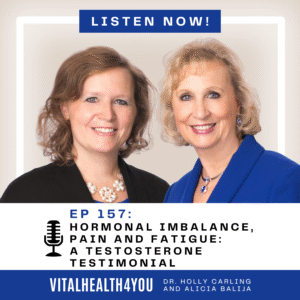The words “I’m tired” come out of the mouth of most new patients I see for treatment. I usually ask “WHY” are they so tired, and how tired are they? Many answer that they have just the “normal tiredness that everyone has”. Well, for the most part, there is no such thing as “normal tiredness”, because not everyone suffers from it. So how tired is too tired, and when is tiredness to a level that it needs to be addressed?
The problem with tiredness is that there is no concrete way of measuring it. Because it is difficult to measure and a lot of people appear to be “okay” despite their tiredness, it often gets pushed off as “depression”. I have too many patients who were put on antidepressant medications because the medical community was unable to define why they were tired, so passed it off as depression, despite the patient voicing to the contrary.
Sleep of course, is the first consideration when it comes to being tired. Fewer people, it seems, sleep well anymore. If you are having a difficult time falling asleep, wake during the night for any reason (unless you go back to sleep within a few minutes and you wake only once), sleep lightly or have a difficult time arising in the morning, chances are your sleep is contributing to your fatigue. There are solutions for every one of these causes.
What you consume can impact your energy. If you are consuming stimulants such as coffee, caffeinated teas, alcohol, energy drinks, sodas and other sugary consumables, you are messing with your energy systems and likely making it worse. They seem to help in the short run, but the damage they do could spiral you down, making you more and more tired over time. Addressing the reasons for fatigue necessitating these stimulants, gets you off the roller coaster.
There are many medical reasons for tiredness, so a very thorough health/medical exam should be the first priority. Going deep into your health history leading up to this point in time gives lots of cues as to what the underlying mechanism is for your tiredness. Blood work and a heath exam are important.
If your fatigue is relentless, is limiting you, or if it is accompanied with other symptoms such as chest pain, breathlessness, digestive disorders, abnormal bleeding, or you simply don’t feel well; If working out leaves you more tired, you are not productive at work or home, or you simply can’t think straight, it’s time to get checked out.
It could be something like a bacterial or simple viral infection, or something more serious such as a serious viral infection, heart, kidney or lung disease, cancer or any number of problems.
Don’t just put up with tiredness and fatigue. Ignoring it isn’t a good idea. Seek the care of a practitioner that is willing to dig deep to find out what is wrong and get it handled. You don’t have to suffer.
©2021 Holly A. Carling, O.M.D., L.Ac., Ph.D.







